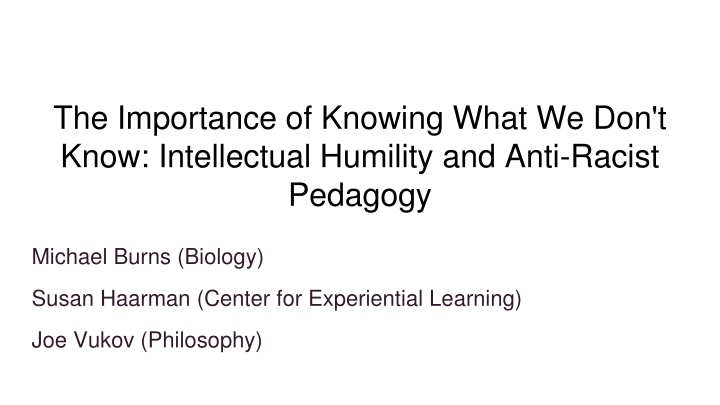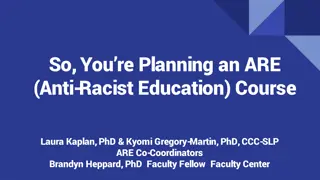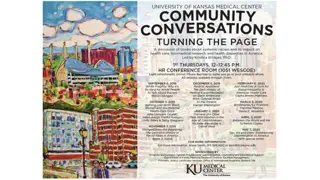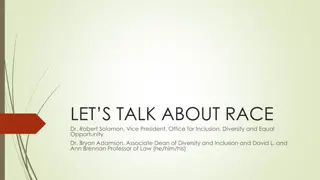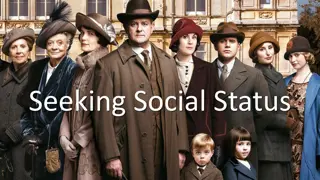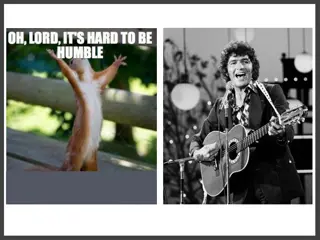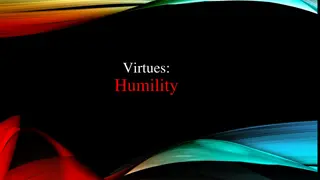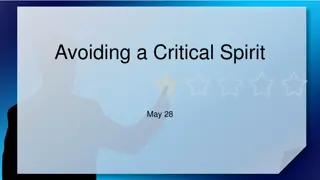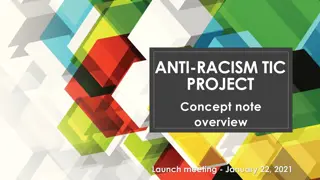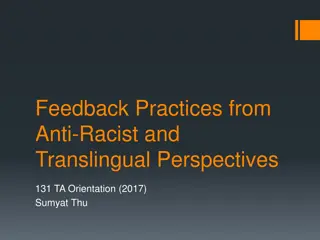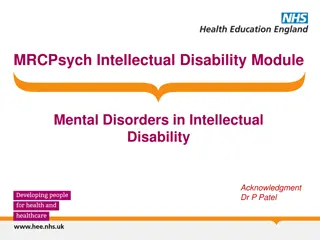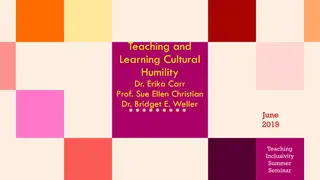Importance of Intellectual Humility in Anti-Racist Education
In various disciplines, acknowledging areas where expertise is lacking is crucial for intellectual growth. Intellectual humility, anti-racist pedagogy, and the integration of lived experiences play significant roles in education. Encouraging self-assessment, resisting egotism, and prioritizing truth aid in developing a deeper understanding of complex subjects. Embracing epistemic justice and cultural awareness can enhance teaching practices in diverse classrooms.
Download Presentation

Please find below an Image/Link to download the presentation.
The content on the website is provided AS IS for your information and personal use only. It may not be sold, licensed, or shared on other websites without obtaining consent from the author.If you encounter any issues during the download, it is possible that the publisher has removed the file from their server.
You are allowed to download the files provided on this website for personal or commercial use, subject to the condition that they are used lawfully. All files are the property of their respective owners.
The content on the website is provided AS IS for your information and personal use only. It may not be sold, licensed, or shared on other websites without obtaining consent from the author.
E N D
Presentation Transcript
The Importance of Knowing What We Don't Know: Intellectual Humility and Anti-Racist Pedagogy Michael Burns (Biology) Susan Haarman (Center for Experiential Learning) Joe Vukov (Philosophy)
Discussion What are three areas in your discipline in which you don t have expertise? In your best moments, how do you interact with scholarship in these areas (at conferences, in your research, in conversation, etc.)? How do you react when you get a question about one of these lesser known area, especially if it s in a public arena (i.e. class, as a questions to a paper you re presenting)?
Intellectual Humility In our better moments, we often exhibit the virtue of intellectual humility while interacting with areas in our field in which we don t have expertise. Intellectual Humility includes: Accurate Self-Assessment: knowing what we know and what we don t know Anti-Egotism: not caught up in our own desire to be right Truth-Directed: a desire to understand ourselves and the world around us Note: the truth directed aspect of IH is crucial. It gives IH a purpose and value. Moreover, a lack of IH is problematic not only on a personal level...it can also undermine our ability to understand ourselves and the world.
Do you encourage intellectual humility in your students? If so, what s one way you do so?
Intellectual Humility and Anti-Racist Pedagogy Intellectual Humility is a cornerstone of anti-racist practice Acknowledges that we all have epistemic blindspots, especially because of lived experiences Anti-Racist Pedagogy and Intellectual Humility both prioritize the truth and are not culturally relative Focus on acknowledgement of structural realities of racism Examination of economic and social structures and historical roots of inequality. Analyze unequal social and power relations.
Intellectual Humility, Anti-Racist Pedagogy & Ignatian Pedagogy What is the place of lived experience in the classroom? Anti-Racist pedagogy and Ignatian Pedagogy both highlight it as an epistemic force and essential context to learning Inclusion of these experiences is a major issue of epistemic justice Magnanimity cannot be present without humility in the Jesuit Tradition
Intellectual Humility and Anti-Racist Pedagogy How do we engage with students who may call our approaches/verbage/terms into question, especially if we believe the content to be anti-racist?
Intellectual Humility and Anti-Racist Pedagogy Are there areas in your field of study / practices in which you find it harder to practice intellectual humility around? Why or why not? What are the major barriers to intellectual humility & anti-racist pedagogy you have experienced in the classroom? Focus on yourself before moving to students or structural components.
A question we need to ask ourselves: Is my teaching racist?
Is my teaching racist? Compile your own grading data Did any student groups disproportionately get Ds, Fs, or withdraw?
n = 479, Introductory Biology, Syracuse University No intervention Interventio n What trends do you see here? Underrepresented Minority (URM) Students Fig. 2, Snyder, et al. PLoS Biol. 2016 Mar; 14(3): e1002398.
n = 479, Introductory Biology, Syracuse University No intervention Intervention Was the intervention successful? Underrepresented Minority (URM) Students Fig. 2, Snyder, et al. PLoS Biol. 2016 Mar; 14(3): e1002398. Peer- led Team Learning (PLTL) Helps Minority Students Succeed
Classroom A Classroom B Sociology Course Social Justice, Bias, Stereotype threat are all covered as main themes in the course The class format is a traditional didactic lecture with little-to-no student interaction or feedback Chemistry Course Social Justice, Bias, Stereotype threat are never mentioned. The course format is designed using evidence based practices that eliminate the achievement gap between URM and non-URM learners What are the anti-racist elements present in each of these classrooms? Which of these classes is most likely to help URM students succeed?
